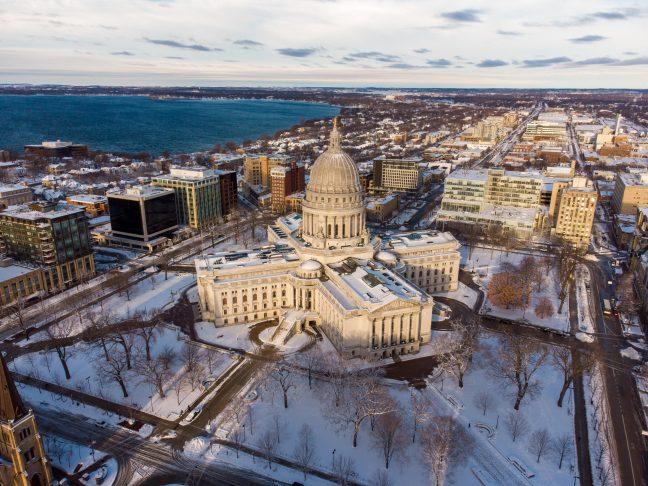The manufacturing company Foxconn announced a new partnership with the electric automaker company Fisker Automotive.
Based in California, the two companies will collaborate to produce electric vehicles, possibly in Wisconsin, according to a report from The Journal Times.
Thomas J. Falk Distinguished Chair in Business Russ Coff said in theory, the partnership will lead Foxconn to produce an electric vehicle for Fisker. He said tech companies frequently outsource their manufacturing.
“It’s a common outsourcing model in the tech world, particularly in consumer electronics,” Coff said. “But it’s not very common in the automotive world.”
Coff said U.S. automakers are historically vertically integrated, meaning they both designed their vehicles and completed final assembly. Additionally, many auto-part suppliers are also owned by the same parent company.
In recent years, companies began outsourcing the manufacture of the parts they use for their vehicles, Coff said. But, Coff said most companies will still complete the final assembly themselves.
Coff said the partnership between Foxconn and Fisker appears high-risk in his view.
Management and Human Resources professor Hart Posen said the existing factory deal Foxconn struck with the state of Wisconsin could be leveraged when creating partnerships with companies such as Fisker.
“You can think of the deal Foxconn made with the state of Wisconsin a few years ago as a sort of asset. They’ve got this deal that gives them certain tax breaks,” Posen said. “That is something they can leverage in their negotiations with Fisker and others as a means to create that partnership.”
Foxconn made numerous announcements of innovation centers, education investments and coffee kiosks which never fully materialized in the past, and Posen said he never fully trusted the claims Foxconn made.
“Foxconn has reneged on almost all of the contractual elements in the deal,” Posen said. “Reasonably, then, anyone should be skeptical about signing a new deal. Why sign a new deal if you know they won’t live up to the deal?”
Posen said he believes it is possible Foxconn doesn’t see its existing contracts as a commitment to whatever deals they make, but rather, as an option if the economics of the industry are favorable.
Posen said he believes Foxconn sees their current contract with the state of Wisconsin as a possibility to build if or when the economics play out.
“These deals are always done well in advance. The kinds of facilities Foxconn builds are very large, and they need to be built well in advance,” Posen said. “There’s tremendous uncertainty with the economics when you’re looking at what the market will be like for a technology in a few years.”
Posen said, in his opinion, Foxconn views their announcement with Fisker not as a substantive partnership, but as an opportunity to become involved with automobile production.
Similar to Apple and other tech companies, Posen said he believes Fisker wants to continue designing automobiles but does not want to be involved in the production aspect.
“[Foxconn] doesn’t see this as jumping in with Fisker. They see this as, ‘We’re getting into this industry, and we’ll build electric vehicles.’ They’re thinking about it the same as they do with any of the other tech brands,” Posen said.
Coff said the current situation leaves him unsure as to whether or not vehicle production will occur in Wisconsin, as was discussed.
“I would be very surprised if they located a major manufacturing plant here,” Coff said. “Having said that, it’s not impossible that some components could be produced in Wisconsin, but I’m not expecting a very large assembly facility to be placed here.”
Coff said large companies such as Foxconn are forcing states and cities to bid against each other in hopes of offering the best deal.
The fact that cities and states are bidding against each other is not the company’s fault, Coff said.
“There is academic literature on auctions, and there is this thing called the winner’s curse. In a competitive bidding, the winning bidder is almost certainly to have overbid,” Coff said. “The politicians in these cities and states are not fully aware of the consequences of overbidding.”
Coff said it is up to these municipalities to ultimately bear the responsibility to avoid fighting in a bidding war they will not win.
In deals with corporations, such as that which Foxconn struck with the state of Wisconsin and Fisker, the structure lends great flexibility. Coff said the loose enforcement present in these deals creates a situation where there is not a significant penalty if a company’s obligation is not met.
Coff said Foxconn’s failure to follow through with deals is not strictly the fault of company, but also a consequence of the way in which the contract was written by the state.
“I think we know from the past, what gets stated and what gets followed through on can be different,” Coff said. “I’m very skeptical that anything comes back to Wisconsin on the deal with Fisker.”


